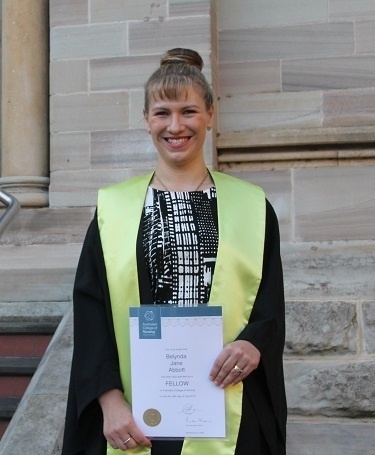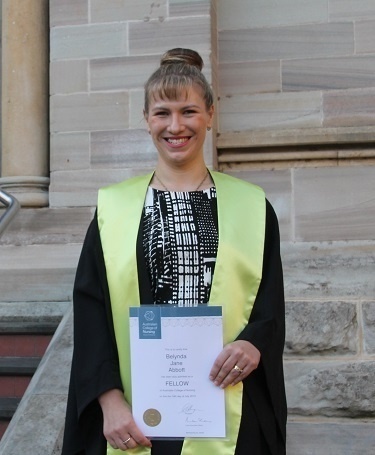
The difference between an enrolled nurse and a registered nurse – by Belynda Abbott
The Enrolled Nurse is a valued and pertinent member of the healthcare workforce. According to the Health Workforce 2025 National projections (2012) Enrolled Nurses (EN) have a higher retention rate compared to that of Registered Nurses (RN) and it projects 4,189 ENs are required to graduate annually from 2015 in order to assist with the nation’s health care demands.
Becoming an EN is often the next stepping stone from a non-licensed health care worker such as an Assistant in Nursing (AIN) or Personal Carer (PC), and is often the succession platform into becoming an RN. There are many disciplines within healthcare that an EN can work within, which makes the job exciting and diverse.
Current debates within nursing are often around defining the difference between an RN and an EN.
University vs Vocational and Education Training
The RN completes 3 years or equivalent of tertiary study in a Bachelor of Nursing, and the EN completes a 2 year or equivalent Diploma of nursing within the vocational education training (VET) sector. Two very different sectors which produce two different types of nurses.
The RN graduates from University with a theoretical mindset that enables them to critically think and assess patient care needs. The EN graduates from a Registered Training Organisation within the VET sector within a competency based practicality. However within the healthcare environment it can be often perceived as hard to decipher the blurred grey line between the RN and the EN from a scope of practice perspective.
Legal perspective
From a legal requirement the EN is accountable and responsible for their own scope of practice, they must ensure their own competence and must adhere to principles of delegation and supervision set out in the professional practice framework within the Nursing and Midwifery Board of Australia (NMBA) to protect themselves and the patients/ clients that they care for.
National Registration came into effect from the 1st July 2010 to establish a public national register of health professionals, and since 2010 the NMBA’s goal has been to allow ENs that have graduated from 2008 onwards to be automatically endorsed for their practice of medicine administration due to completion of relevant units of study once graduated. A notation is placed next to individual EN names on the national nursing register stating ‘Does not hold Board-approved qualification in administration of medicines’ if the relevant units of study have not been completed. It is the accountability and legal requirement for the EN to disclose the notation to their employer, as previously the title Endorsed Enrolled Nurse (EEN) was used to decipher this difference. As a result of the changes the NMBA has removed this title.
Working together
The EN works alongside the RN at all times within the context of care and demonstrates competence in the delivery of person-centred care in accordance with the decision making framework, which is based in competence. The EN is required to work under the direct or indirect supervision of the RN, and the EN retains responsibility for their own actions and remains accountable in providing care that has been delegated according to the context, the health needs of the patient/ client, the competencies required and the compliance with the employer’s policies and procedures (Nursing and Midwifery Board of Australia, 2007). It is the context of care that can then blur the lines of scope of practice within the varying healthcare environments. For example an EN can expand their scope of practice and administer IV medication once they have completed the appropriate elective unit of study, their aligning pre-requisite components and then deemed competent to do so. However if the employers governing policies and procedures do not allow ENs to administer IV medication then it is the ENs responsibility to abide within the scope of practice governed by that of the employer. Another example where an EN can expand their scope of practice would be within the regional, rural and remote environment due to the workforce availability and capacity compared to that of a metropolitan area.
In order to provide optimal and safe patient centred care, it is within the healthcare environment where health professionals and their employers need to ensure that scope of practice is clearly articulated and that in particular the RN and EN work together harmoniously towards this common goal.
 Belynda J Abbott, RN, BN, GDipClinEd, Cert IV TAE, FACN, is a Nurse Educator at the Princess Alexandra Hospital in Brisbane. Belynda has worked as a Clinical Nurse and Nurse Educator at both the Royal Brisbane and Women’s Hospital and the Royal Darwin Hospital for many years. She has experience in Neurosciences, Orthopaedics, Infectious Diseases, Hyperbaric nursing, surgical and general medicine. Belynda is a Fellow of the Australian College of Nursing (ACN), the Key contact for the ACN’s Brisbane region and has a passion for mentoring and guiding the next generation of nurses. She is committed to providing leadership within the nursing profession and is passionate about education and building capacity to provide optimal patient care.
Belynda J Abbott, RN, BN, GDipClinEd, Cert IV TAE, FACN, is a Nurse Educator at the Princess Alexandra Hospital in Brisbane. Belynda has worked as a Clinical Nurse and Nurse Educator at both the Royal Brisbane and Women’s Hospital and the Royal Darwin Hospital for many years. She has experience in Neurosciences, Orthopaedics, Infectious Diseases, Hyperbaric nursing, surgical and general medicine. Belynda is a Fellow of the Australian College of Nursing (ACN), the Key contact for the ACN’s Brisbane region and has a passion for mentoring and guiding the next generation of nurses. She is committed to providing leadership within the nursing profession and is passionate about education and building capacity to provide optimal patient care.
Image (nurse): stockimages – freedigitalphotos.net
Image (medicines): Baitong333 – freedigitalphotos.net.au
More resources on My Health Career:


5 replies to “The difference between an enrolled nurse and a registered nurse – by Belynda Abbott”
Hi,
I would like to know if I take the enrolled nurse course (I will probably be doing it at TAFE)
And then I decide to go to Univeristy and do a BN to be an Enrolled nurse, might it be that the degree takes 2 years instead of 3 because of some experience I already have?
I am just going to start my career in this area and want to get into it a bit slowly.
Thanks for answering this
Hi Jessica,
You might want to look at the options on page 24 in this booklet for TAFE QLD as a guide: https://tafeqld.edu.au/assets/oneweb/PDF/course-guides/2018/TAFE-Queensland-2018-university-pathways-guide.pdf
I’m not sure what state you are in, but you might be able to find something similar for your location. And did you mean go to uni to become a Registered Nurse? In a nutshell different universities have different arrangements with TAFE for their pathway to becoming a Registered Nurse.
I hope this helps!
Amanda. :-)
Becoming a nurse is my childhood ambition but unfortunately I had to leave my country due to the civil war and seek asylum. I wasn’t get the opportunity to finish my high school. I have the passion to do this job. I don’t have any degrees, but I have completed CertIII in pathology Specimen Collection. Is there anything will enable me to enter into a nursing school?
Hello Jeevitha,
I am so sorry to hear about what you’ve been through. I hope that you are doing okay now.
If you are in Australia, the Diploma of Nursing will allow you to become an Enrolled Nurse. Then you may or may not wish to complete a Bachelor of Nursing to become a Registered Nurse.
Here is information on diploma courses in Australia: https://www.myskills.gov.au/courses/details?Code=HLT54115
You might also wish to read about Hannah, who completed certificate courses before becoming an EN and ultimately a RN: https://www.cyohealthcareer.com.au/story/registered-nurse/
If your intention is to become a Registered Nurse, you might also wish to contact the universities where you would consider studying to see if you could apply and complete a tertiary bridging program prior to starting a Bachelor of Nursing.
Best wishes,
Amanda – founder MHC.
Is there an age limit in applying to study to become an RN also, is there a prerequisite test to be eligible to study to become an RN?